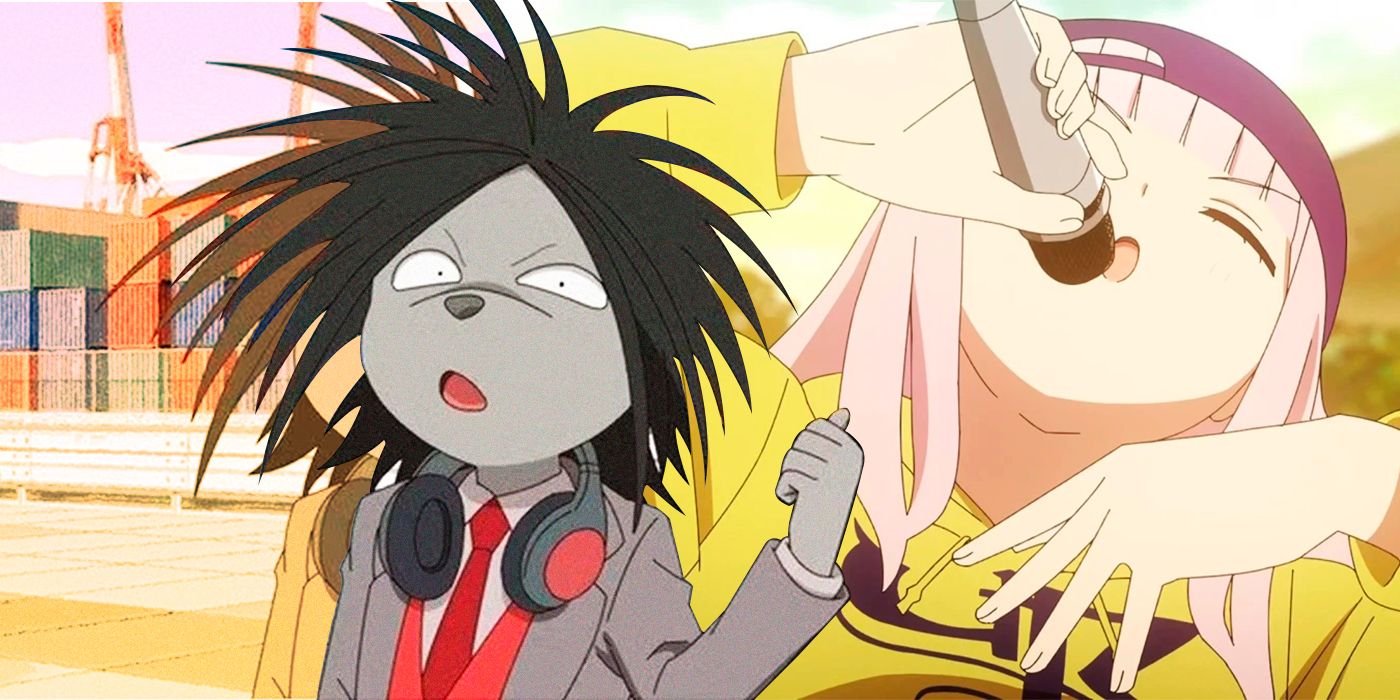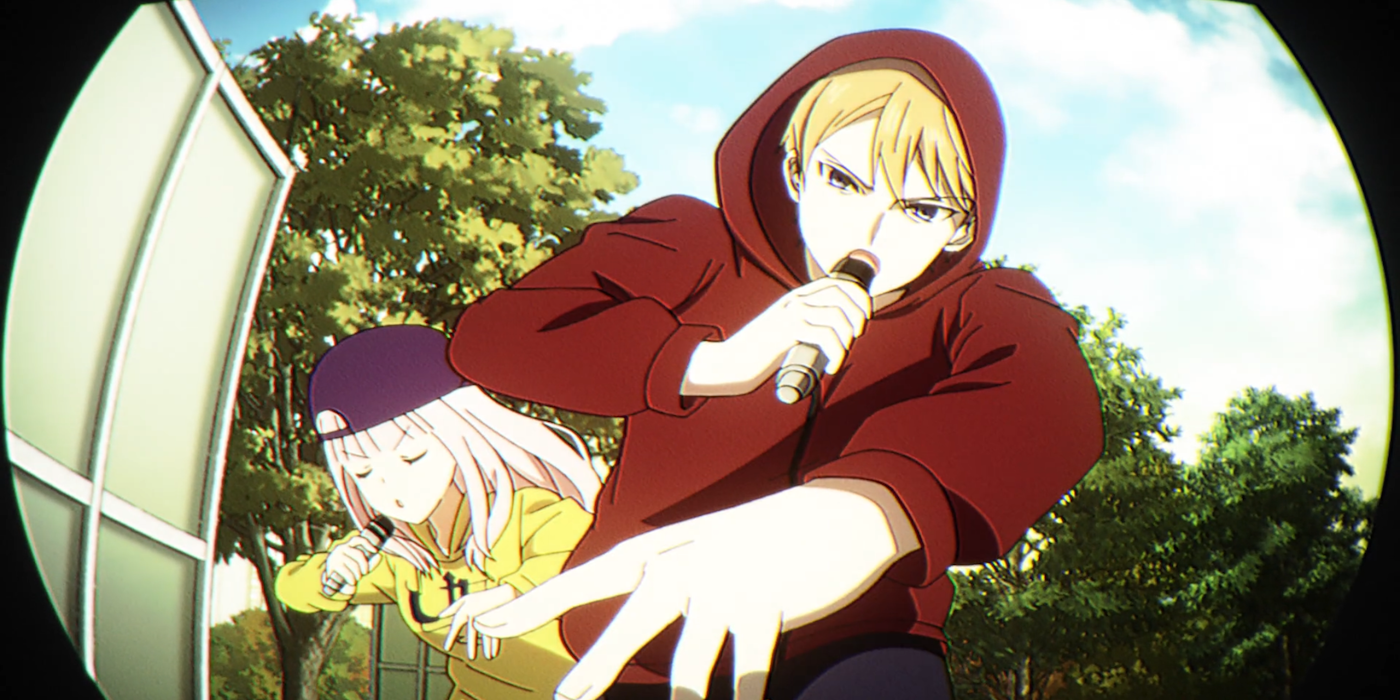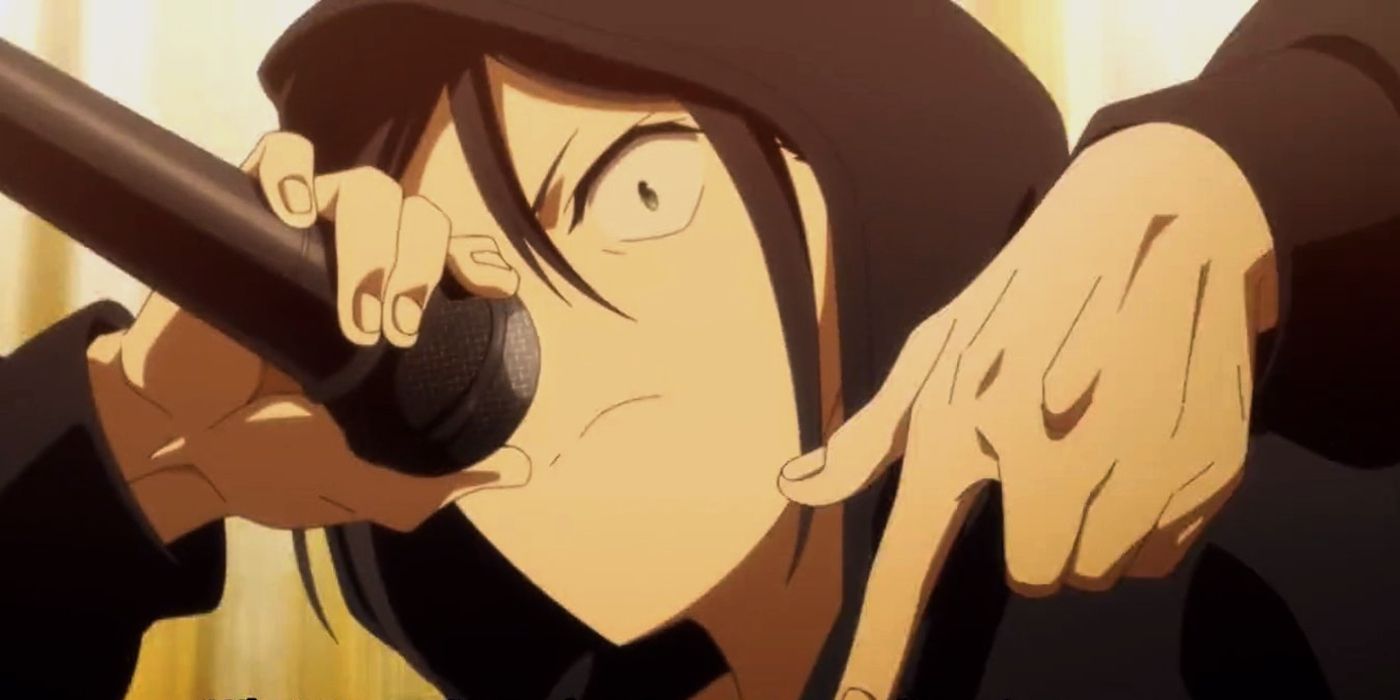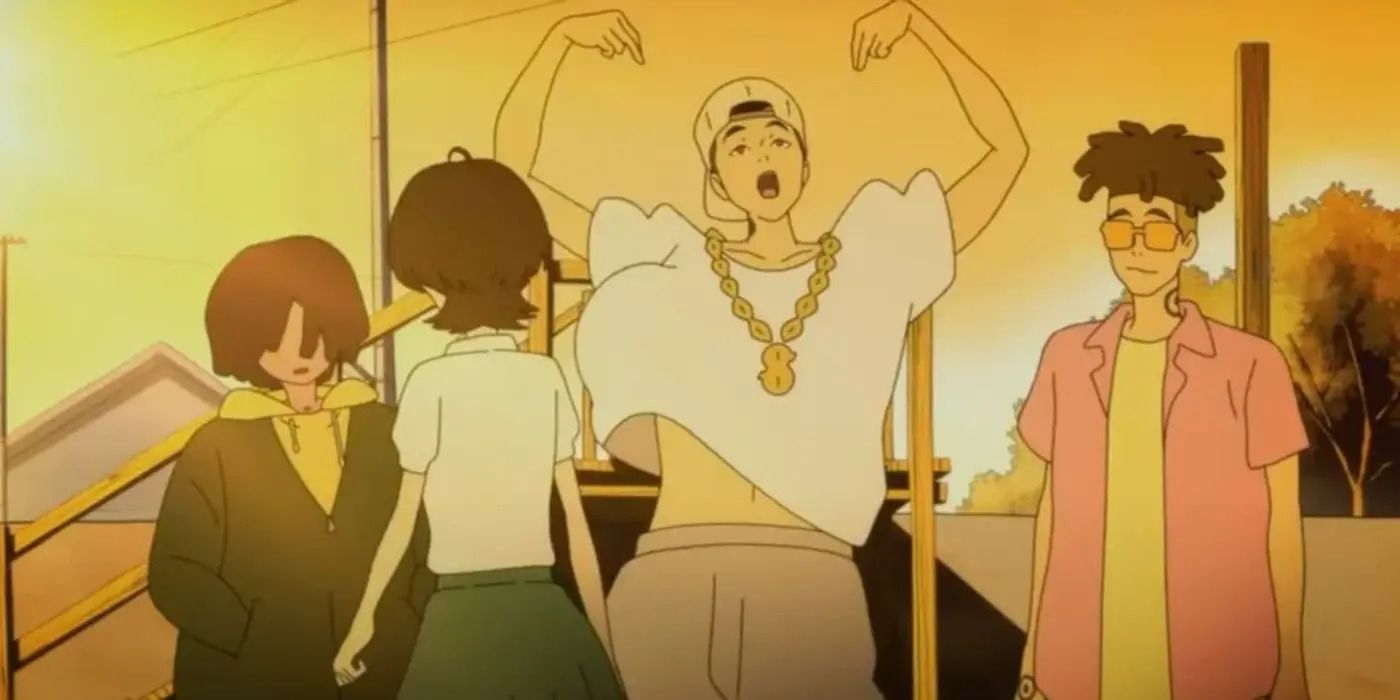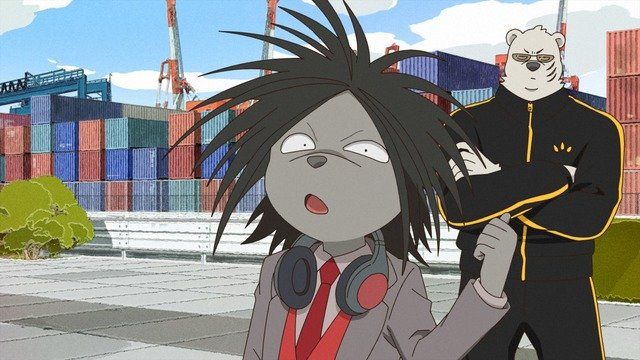Oshi no Ko's success might be soaring, but there’s no doubt that long gone are the days when J-pop/idol music was all anime could offer. In fact, in recent years, J-pop has been slowly but steadily replaced by hip-hop as the preferred genre to turn to, especially as far as critically acclaimed anime series are concerned. From the revolutionary neo-noir Odd Taxi to the fast-paced, laugh-out-loud Kaguya-sama: Love Is War, hip-hop has settled itself into each and every genre, virtually taking over anime.
Often exploited for comedic effect, hip-hop has been used in anime in other ways too. While it was hilariously satisfying to see tone-deaf Shirogane Miyuki attempt to convey his feelings in a rap battle, it was just as effective when a similar rap battle allowed Kabetaijin to overcome his trauma and recover from the anxiety of performing on stage. From moving the story forward and reaching emotional peaks to describing a hopeless dystopian world, anime proves that hip-hop can do this and much more, moving away from its stagnant idol series with a wave of fresh creativity.
Hip-Hop Can Move the Story Forward in Surprising Ways: Kaguya-sama and Kongming
In the latest season of Kaguya-sama: Love Is War, Shirogane and Hayasaka forge an ambiguous friendship with potential romantic feelings on both sides. While the possibility of anything happening between them has long since been dispelled, their burgeoning bond remains one of the most appealing narrative threads of the Ultra Romantic season. In an attempt to force Hayasaka to admit that to be loved, one does not need to put on an act, Shirogane asks for Fujiwara’s help to write a rap song that will express his thoughts.
The main goal of the subsequent rap scene is undoubtedly to make the audience laugh, as this is arguably the funniest moment in the whole series. Fujiwara, one of the most comedic characters, suddenly turns up dressed like a hip-hop artist and supports Shirogane -- the usually composed, serious model student -- as he raps his way through a moving display of vulnerability and generosity. The effect is alienating, to say the least, and obviously, wildly hilarious.
However, the scene also offers Shirogane the chance to prove that people can go out of their comfort zones to help others. It’s a pivotal moment in Shirogane and Hayasaka’s relationship, which proves to the latter that she has a real friend. The rap scene instantly moves the story forward, with Hayasaka and Shirogane finally becoming friends and Shirogane reconsidering his approach to 'acting' in his war for Shinomiya’s heart.
Another Spring 2022 anime made hip-hop a central musical and narrative theme that pushed its characters past life hurdles and trauma. In Ya Boy Kongming! -- the anime with an opening theme song that will certainly survive the test of time -- Kabetaijin, a young rapper forced by anxiety and fear of inadequacy to quit, finally finds his way back to his passion through an unforgettable rap battle. His adversary is none other than Kongming himself, the historical figure celebrated for his strategic intelligence and the titular character of the series.
Perhaps more humorous rather than overtly funny, Ya Boy Kongming! doesn’t renounce the opportunity to be comedic. Nevertheless, the rap battle between Kabetaijin and Kongming, while leaving the audience in awe of Kongming’s mastery of words and knowledge, is all about Kabetaijin’s touching fight to overcome his own reluctance to perform. Finally faced with a worthy opponent, Kabetaijin finds his will to rap again when he recognizes that there is no other way for him to live. It’s a powerful scene that leaves the audience gasping for air as much as Kabetaijin at the end of his performance.
Beyond Comedy, Hip-Hop Can Convey Gritty, Painful Realities: Odd Taxi and Devilman Crybaby
In Kongming, Kabetaijin’s rap battle helps him move his story forward, but in 2018's Devilman Crybaby, hip-hop is a detail in the thickly populated background that acts as the stage for its main characters to inhabit. As early as in Episode 1, some kids are seen wandering around the city aimlessly, singing in rhymes about the misery of their existence. While they have bad intentions -- or at least, an aggressive demeanor -- the audience cannot help but empathize with the hopelessness of their lives. They are stuck in a dilapidated city brimming with crime that holds no brilliant future for them.
As the series progresses and gets darker and more violent, hip-hop stays as a fil rouge that links the past to the present and, beyond, to the barren future. The kids’ rap songs are a cry for help, or better, the agonizing screams that serve no other purpose than showing their frustration for the hand they’ve been dealt by fate.
Vastly different, 2021's Odd Taxi likewise links hip-hop with the gritty reality of a city ridden with crime and anguish. In Odd Taxi, Yano, a young yakuza boss, cannot help but speak in rhymes and rhythms, making rap his sole way of communicating. While it might come across as oddly humorous, the narrative choice helps set the tone, giving the show a 'street' feel that would otherwise be lacking, and which is essential to the neo-noir atmosphere of the series. Odd Taxi is a masterpiece also thanks to its realistic portrayal of the rich and widely diverse cultural scene that is typical of Japan.
Hip-Hop Has Replaced Idol and J-Pop as the Main Musical Inspiration in Anime
Idol music is still very much present, as can be gleaned by the sheer number of idol-themed shows that come out every season. Oshi no Ko’s instant rise to popularity, for instance, is proof that J-pop music is far from becoming an unfashionable choice. While its success is arguably due to the dark tones of its pilot episode and the unforeseeable twists of its narrative, it’s undeniable that idol shows like Oshi no Ko still resonate with the majority of anime fans.
However, J-pop has been surpassed by hip-hop as a narrative device. While J-pop is still predominant in music anime, hip-hop has gained traction as a tool for comedy, emotionality, realism and storytelling, especially in critically acclaimed anime. Devilman Crybaby, just to mention one, has gained a score of 89% from critics on Rotten Tomatoes, a website that is not compiled by anime aficionados. While J-pop remains the go-to choice for music anime, hip-hop has become an instrument to bridge the gap between anime and audiences that the medium may not reach otherwise -- a group, part of the younger generations, who might feel closer to street music, raw performances and gritty landscapes rather than the shiny, perfect Makoto Shinkai-esque world of traditional anime.

